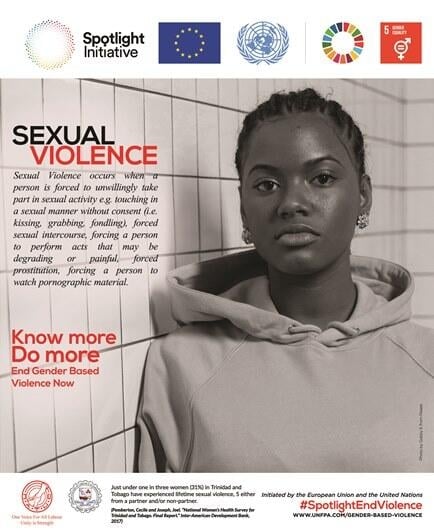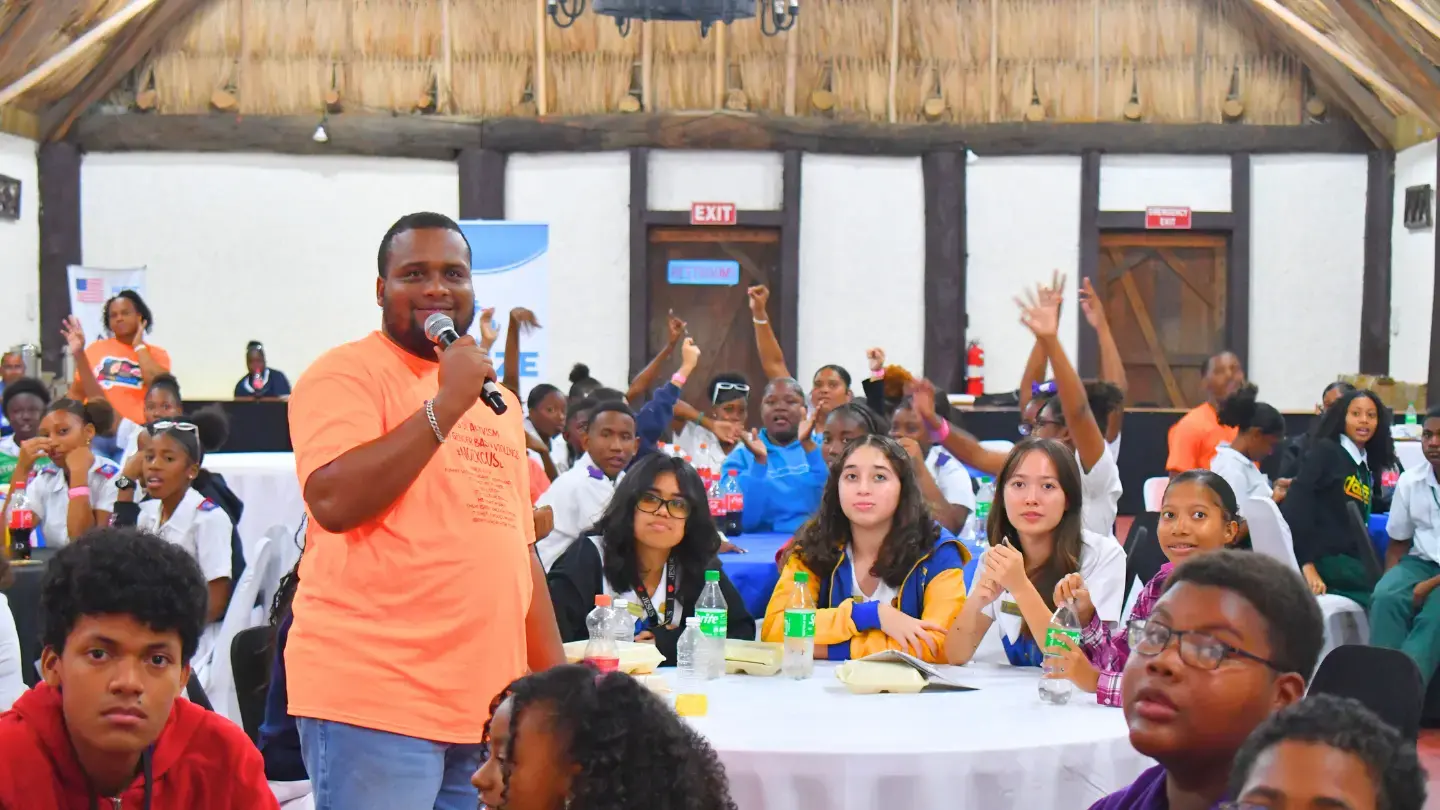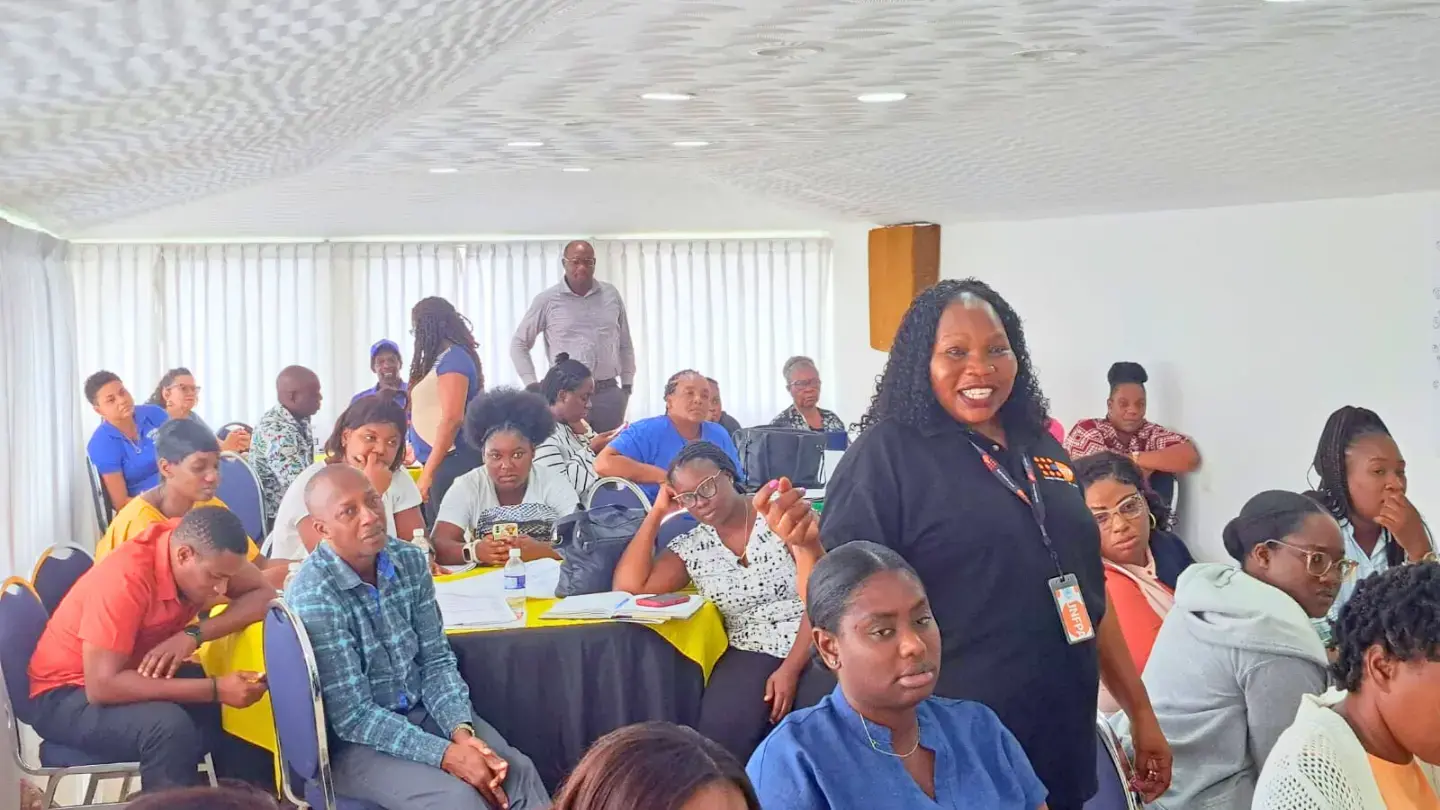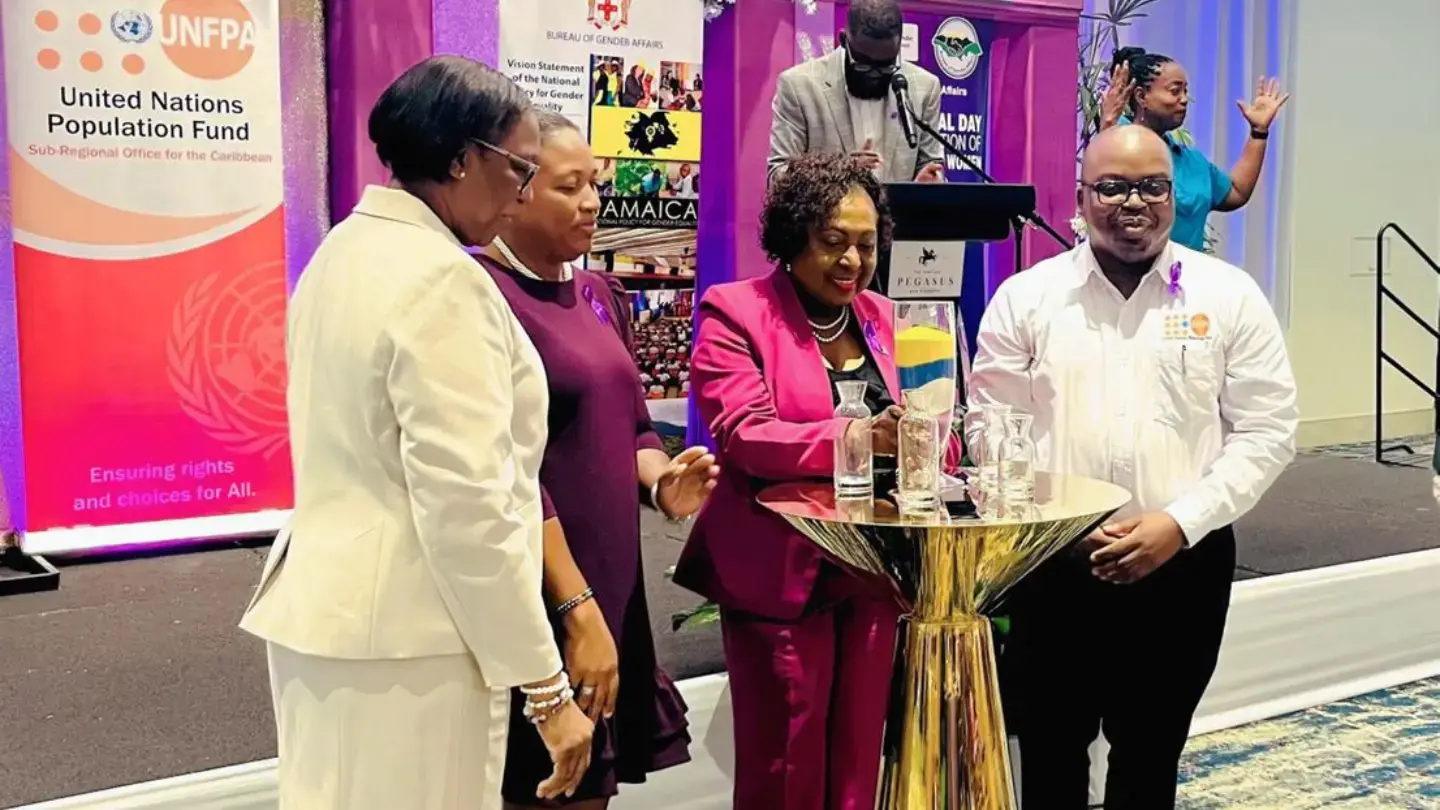Under the EU- UN Spotlight Initiative UNFPA has supported a number of projects, which have made significant inroads into the reduction of family violence in Trinidad and Tobago and specifically in the three Spotlight communities: Mayaro-Rio Claro, Tunapuna-Piarco and Tobago. We are pleased to share the following project achievements, which have been secured within the context of the COVID-19 pandemic and numerous lockdowns.
The Arthur Lok Jack Global School of Business produced a Catalogue of Service for the Economic Empowerment of Women which has been well received and distributed to sixty-four locations throughout the Spotlight communities and is also available in soft copy via the UNFPA Caribbean and UN-Trinidad and Tobago websites. This Catalogue has received positive reviews and is being hailed as an invaluable tool by users, including first responders, the Trinidad and Tobago Police Service and health centres.
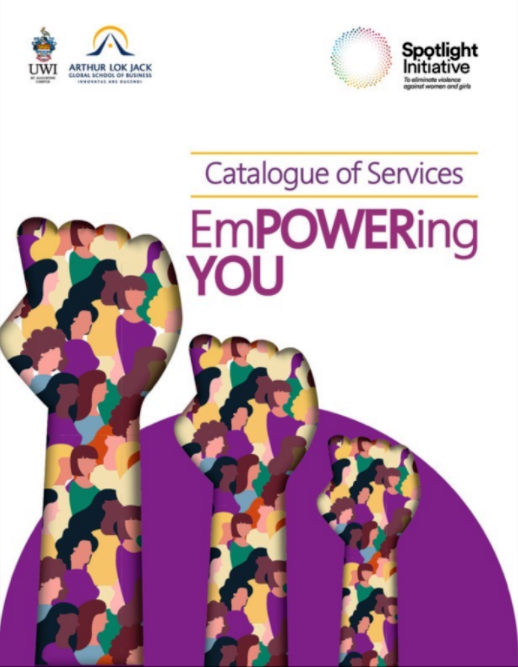
The National Trade Union Centre (NATUC) has trained 140 members from 20 member trade unions in gender-based violence in the workplace. NATUC has also engaged in a champions against GBV campaign which has created greater awareness of gender-based violence and its impact on productivity. Their mantra to their public remains, Know More, Say More, a phrase encouraging everyone, not just employees, to speak up and stand up to end gender-based violence. NATUC remains one of the organisations leading the charge in eliminating family violence and addressing gender-based violence in the workplace.
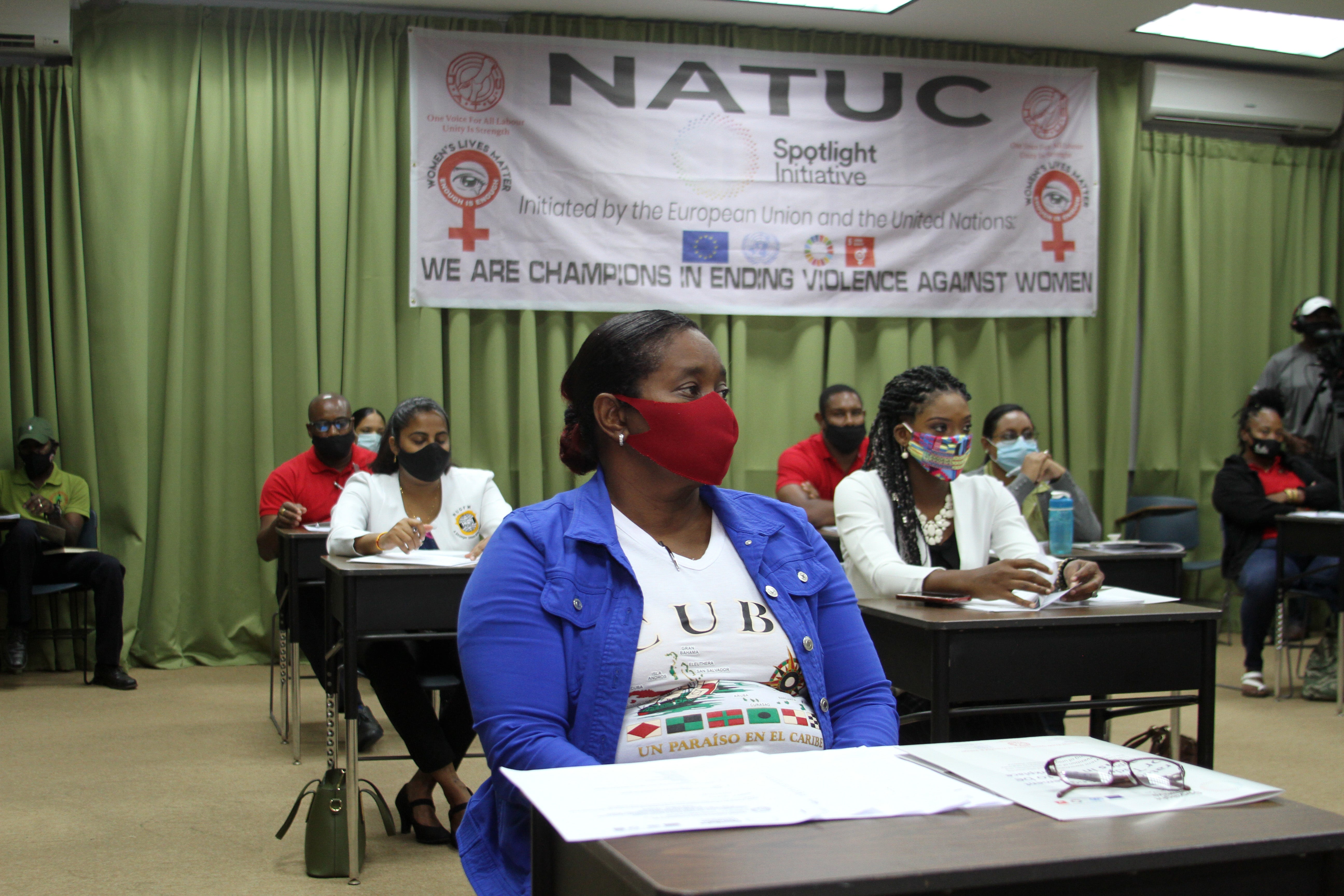
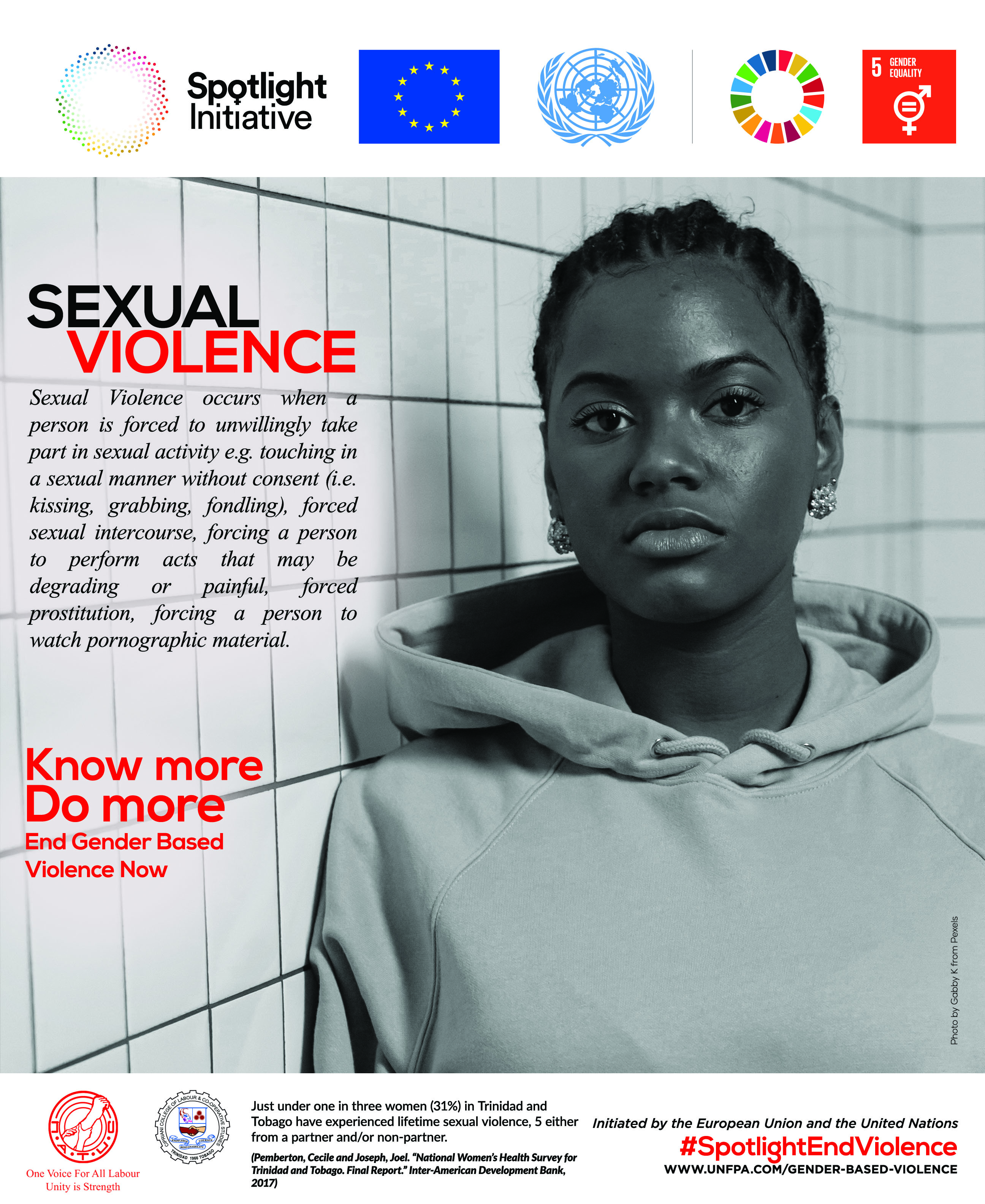
The Family Planning Association of Trinidad and Tobago (FPATT) has been at the forefront of the movement to support and empower women and girls. They are engaged in a number of projects towards this end. Of note is their work with the migrant population and survivors, for which FPATT has developed a bilingual application, called HuE, which provides access to services and support. They have also established a bilingual hotline which has already been utilised widely by locals and migrants alike and are offering psychological support in Tobago for victims and survivors of family violence.

The Institute of Gender and Development Studies (IGDS) of the University of the West Indies is leading the way on two important projects. The first of these is a revision and update of the Health and Family Life Education curricula in both primary and secondary schools to include key issues around family violence and comprehensive sexuality education. The second is a much needed training intervention with men and boys and faith-based leaders utilising the UN’s Foundation and Partnership for Peace programmes. These projects have been ongoing and already the first cohort of men and boys have been trained in the awareness and elimination of family violence. It is hoped that these projects will have a lasting impact as they change attitudes and social norms of men, boys and faith based influencers with a national reach.
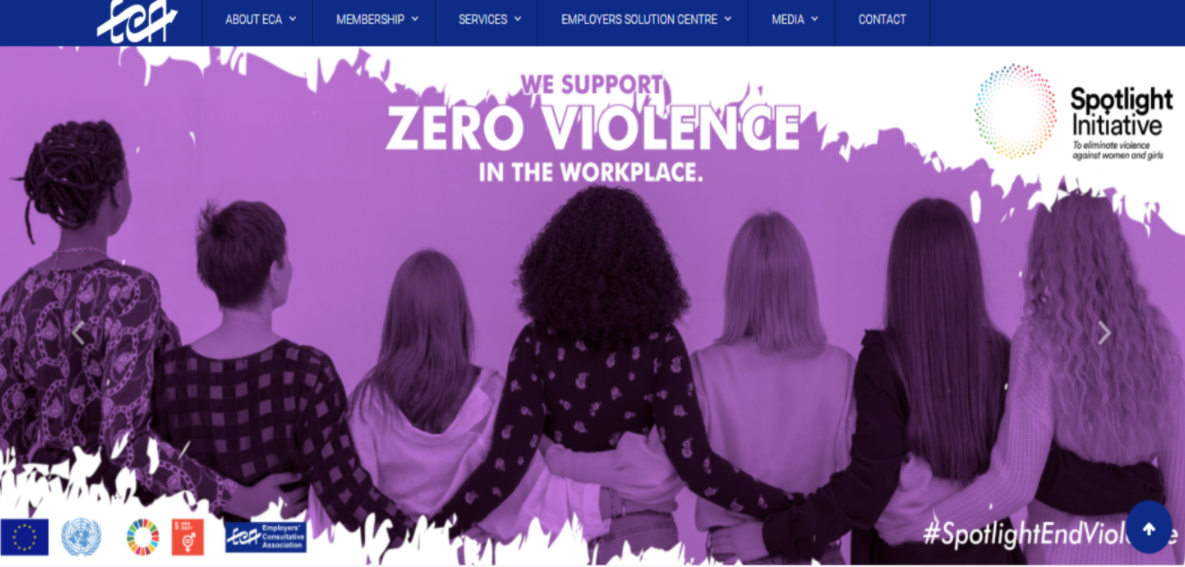
One of the key achievements of UNFPA’s work under the Spotlight Iniatiave is the establishment of a successful symbiotic relationship between labour and management. The Employers Consultative Association (ECA) is doing complementary work to NATUC. While these two organisations have traditionally been on opposite ends of the industrial relations spectrum, under the Spotlight Initiative, they are both working to raise the awareness of and eliminate gender-based violence in the workplace. The ECA has conducted a survey of its membership to determine what gender-based violence policies and strategies already exist. It is creaeting a Workplace Policy on gender-based violence, intimate partner violence and sexual harassment which will no doubt serve to to reduce gender-based violence in the workplace and support those who experience family violence in the homes.
Another significant project being undertaken by the Coalition Against Domestic Violence (CADV), one of UNFPA’s implementing partners in Trinidad and Tobago, is the establishment of a Multi-stakeholder Committee to guide an Assessment of GBV Case Management Services. This committee functions as a sub-committee of an inter-ministerial committee responsible for supporting the eradication of GBV in Trinidad and Tobago. Members are drawn from Government departments including the National Family Services, Civil Society, Academia and organisations working with the LGBTQI community and persons with disabilities. The aim is to strengthen the national system for GBV Case Management and develop Standard Operating Procedures (SOPs) for Case Management, including referral pathways

